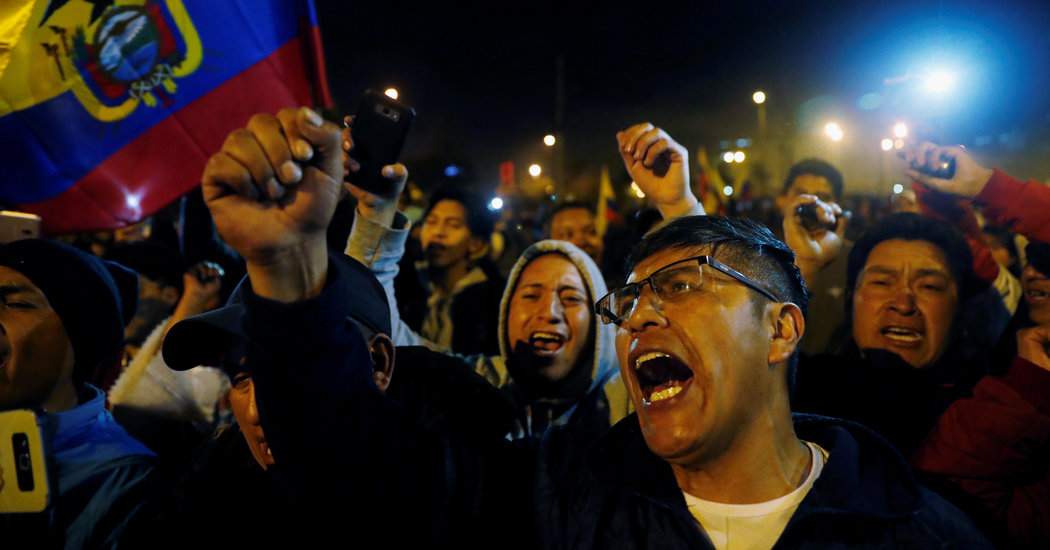
El Espace is a column dedicated to news and culture relevant to Latinx communities. Expect politics, arts, analysis, personal essays and more. ¿Lo mejor? It’ll be in Spanish and English, so you can forward it to your tía, your primo Lalo or anyone else (read: everyone).
Over the past few years, Indigenous Peoples’ Day has been adopted in a number of states and cities in the United States as a justice-oriented answer to Columbus Day — a way to focus on Indigenous people and acknowledge the impact of Christopher Columbus’s voyages to the Americas on the Native people who were already here. But in addition to being a corrective, the day also highlights the Indigenous groups still preserving their cultures in the United States and abroad.
Take Ecuador, for example: Last week, thousands of people took to the streets to protest austerity measures imposed by the country’s president, Lenín Moreno, that disproportionately affected Indigenous Ecuadoreans. Many of the demonstrations were led by Indigenous groups, and on Sunday movement leaders struck a deal with Mr. Moreno to end the protests.
Charlie S. Uruchima, an activist based in New York who supported the protests in Ecuador, said the demonstrations were a result of “built-up anger and frustration” about the marginalization of Indigenous groups in the country. He referred to comments made by Jaime Nebot, a former mayor of Guayaquil, when asked on camera what message he had for the protesters. Nebot said, essentially, that the protesters should stay in the “páramo,” referring to mountain villages where many Indigenous groups reside.
But this sort of dismissal is perhaps what motivated the protesters to head to Quito, Ecuador’s capital, in the first place. “They’re more and more willing to be out in the streets,” Uruchima said, connecting the movement to an Indigenous uprising in the 1990s. Young people “who heard these stories or grew up with parents who were involved in the movement, they’re also at the helm,” Uruchima added, and they’re “using this opportunity to assert their power and presence.”
The demonstrations in Ecuador reflect the broader struggle for Indigenous visibility across the Americas. Uruchima, for instance, has a radio show, “Kichwa Hatari,” that he records in Kichwa, an Ecuadorean variant of Quechua, as a way of preserving the language, which has roots in the Andes and is spoken in Bolivia, Ecuador and Peru.
In a 2014 interview with The New York Times, Uruchima said he hoped the radio show, which he hosts with three others, would become a way for Kichwa speakers “to reach out to each other and articulate the issues affecting the community as a whole.”
“We’re looking for ways to create a solidarity network as concerned youth,” Uruchima said recently about his work supporting the protests in Ecuador from afar, including organizing concurrent protests and a fund-raising campaign. “The community that I work with here has become my family.”







